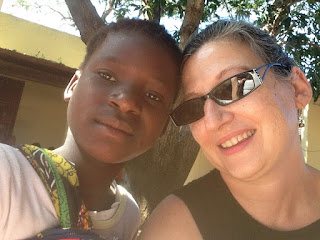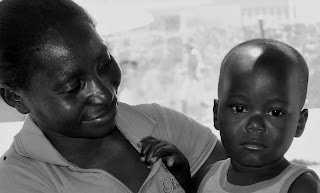New Year
Resolution vs. Declaration of Conformity
 These last
few days I’ve been thinking of my New Year Resolutions. Every year I sit and actively consider what I
need to do for personal improvement. My resolutions have been so typical; loose
20 pounds, curtail my vices; make new friends whilst staying in touch with old;
and keep to a budget. Very typical, and they all have to do with me. So this year
I have a problem – I can’t bring myself to make any resolutions this year.
These last
few days I’ve been thinking of my New Year Resolutions. Every year I sit and actively consider what I
need to do for personal improvement. My resolutions have been so typical; loose
20 pounds, curtail my vices; make new friends whilst staying in touch with old;
and keep to a budget. Very typical, and they all have to do with me. So this year
I have a problem – I can’t bring myself to make any resolutions this year.
Oh please,
if you’re thinking that I’m egocentric you are far from right, I have room for
improvement. I just can’t bring myself to any personal decrees. I think I’m
bitten from the African Declaration of Conformity bug. Do not worry, I will not
fall physically ill nor will I defect from my nationality, but this topic of
New Year’s Resolutions bring up an interesting point of cross-cultural human behaviors.
 For
clarification it must be noted that all humans encompass universal behaviors
regardless of where we were raised – all people in all groups are the same – just
as we all value food when we are hungry. Values are only one aspect that
defines a culture, and thus the behavior within it. Going back to the topic of
food, a culture determines who will eat what, when and how based on what that individual
culture values.In contrast to this cultural norm, some can hold personal
behaviors in which an individual values something differently from the
group. An example is perhaps an
individual who cannot eat in front of other people or a vegetarian in Omaha. So
behaviors are developed from values universally, culturally, and individually.
For
clarification it must be noted that all humans encompass universal behaviors
regardless of where we were raised – all people in all groups are the same – just
as we all value food when we are hungry. Values are only one aspect that
defines a culture, and thus the behavior within it. Going back to the topic of
food, a culture determines who will eat what, when and how based on what that individual
culture values.In contrast to this cultural norm, some can hold personal
behaviors in which an individual values something differently from the
group. An example is perhaps an
individual who cannot eat in front of other people or a vegetarian in Omaha. So
behaviors are developed from values universally, culturally, and individually.
Our American
culture is based on individualism. Individualism concentrates primarily with
the self and the needs of the individual. That self sufficiency guarantees the
wellness of the group. Therefore, independence is highly valued and is an
ingredient that makes strong leadership within the group. Thus, making New Year
resolutions a tool in our culture to make us better individuals.
 No one that
I have spoken to here has ever heard of this personal oath that we make on New
Year. Here they find it a bit humorous , for example when I told a friends that last
year one of my resolutions was to diet she asked if my children lost weight and if my
co-workers minded if I went to exercise. Wait a minute I was talking about MY
decisions for ME. Here in Mozambiquethings are done in a collectivist mentality,
individuals function within a group mentality, like the family or work
group. The success of the group ensures
the well being of the individual. The
interdependence is stressed and thus a stronger unit is formed, traditional
values are maintained and there is consistency.
No one that
I have spoken to here has ever heard of this personal oath that we make on New
Year. Here they find it a bit humorous , for example when I told a friends that last
year one of my resolutions was to diet she asked if my children lost weight and if my
co-workers minded if I went to exercise. Wait a minute I was talking about MY
decisions for ME. Here in Mozambiquethings are done in a collectivist mentality,
individuals function within a group mentality, like the family or work
group. The success of the group ensures
the well being of the individual. The
interdependence is stressed and thus a stronger unit is formed, traditional
values are maintained and there is consistency.  Tradition
and consistency; these elements are fading in the United States - we have
traded them in to be vigorous go-getters with cardiac problems. Americans are
not “obedient” individuals, thus high divorce and drug abuse rates. Submissive
is a synonym to lethargic, conventionality is coupled with apathy.
Tradition
and consistency; these elements are fading in the United States - we have
traded them in to be vigorous go-getters with cardiac problems. Americans are
not “obedient” individuals, thus high divorce and drug abuse rates. Submissive
is a synonym to lethargic, conventionality is coupled with apathy.
On the other
hand, here obedience has led to high HIV rates among women, submission to the
rainfall causes hunger, and corruption has become the conventional way to
succeed.
Is there a
balance? Can I make this my resolution? Can this rebellious idea of meshing two
cultures together work? Will there be a positive change by blending individuals
into groups on one side and having individuals succeed for the benefit of the
group on the other side? You tell me.
When this is
done I will give up coffee.














































